Postcolonialism, Islam, and Women's Identity: A Critical Study
The transition from the colonial to the postcolonial era has brought profound changes across various spheres, particularly in the prevailing ideas and theories that once shaped societies. Many long-held beliefs have been reconsidered, rewritten, and reinterpreted, especially those concerning humanity, religion, and identity. The shift in global orders from a predominantly secular framework to one that increasingly emphasises subjectivity, coupled with the rising discourse on gender, has significantly contributed to these transformations.
Within the broader scope of postcolonialism, two critical and often contentious themes demand attention: religion—especially Islam—and the question of women's identity, particularly that of Muslim women. A key focus is how postcolonialism’s departure from its original secular ideals has influenced religious discourse, particularly in relation to Islam. Additionally, the perspectives of Western classical liberal feminists such as Simone de Beauvoir and Betty Friedan have played a crucial role in shaping modern conceptions of women's identity. At the same time, Muslim feminist scholars like Amina Wadud and Fatima Mernissi have contributed significantly to the discourse on Muslim women's identity, offering alternative narratives that challenge both Western and traditionalist viewpoints.
Overall, both religion and women’s identity have been central to postcolonial discussions. This essay aims to examine the key debates, dominant influences, and major factors that have shaped these discourses, shedding light on their broader implications.
1.0 Islam in Postcolonialism
Understanding how Islam has been interpreted and analysed within the framework of postcolonialism is essential to grasping the broader relationship between the two. Before exploring this connection, it is necessary to first address some fundamental questions: What is postcolonialism? And how can it be defined?
In general, postcolonialism is characterised by a resurgence of religiosity and a departure from secularist worldviews. The collapse of the U.S.S.R. (Union of Soviet Socialist Republics)—once the largest atheistic state—before it even reached a century, along with the shift of many nations away from their secularist foundations, reflects this transformation within the postcolonial order.
A key driver of this shift lies in the evolving concept of ‘subjectivity,’ which has developed over decades. The liberal-centric world has long emphasised individuality, gradually elevating subjective experience over objective truth. In a landscape where values and norms have become increasingly fragmented, many have turned to faith on a personal level, asserting, “We feel God subjectively, so we believe in Him.” This widespread return to religiosity has significantly shaped the postcolonial world order.
It is particularly important to examine how this revival of religious consciousness within postcolonialism intersects with Islam. A key example of this is the Iranian Revolution, which serves as a case study in understanding the resurgence of Islam as both a political and ideological force in the postcolonial era.
1.1 The Iranian Revolution of 1979
The Iranian Revolution of 1979 marked a significant resurgence of Islam under the leadership of Ayatollah Ruhollah Khomeini. The revolution transformed Iran from a Western-oriented monarchy under the Shah into an Islamic republic, signalling a dramatic shift from secularism to an Islamized governance structure.
During the long decades of the Shah’s rule, Iran embraced many Western liberal values and norms, aligning itself closely with Western ideologies—similar to Turkey under Mustafa Kemal Atatürk. Even the hijab was banned under the Shah’s regime as part of an effort to modernise the nation along Western lines. However, the 1979 revolution reversed this trajectory, reinstating traditional Islamic values that the West often perceived as regressive. Under Khomeini’s leadership, the principle of Wilāyat al-Faqīh (Guardianship of the Islamic Jurist) became central to the new political order, mobilising mass support for an Islamic state.
A particularly noteworthy aspect of this ideological shift was its mass mobilisation, including the participation of women. Contrary to Western feminist narratives that often depict religion as an impediment to women’s rights, Iranian women actively participated in the revolution, even protesting for their right to wear the hijab. The activism of Muslim women in Iran and other nations has demonstrated the possibility of integrating religion with feminist discourses, ultimately contributing to the emergence of Islamic feminism.
Michel Foucault, in his analysis of the Iranian Revolution, described it as an attempt to establish an ideological framework beyond Western philosophical and revolutionary models. He referred to this transformation as the emergence of a ‘political spirituality,’ suggesting that Iran’s shift was not merely a political revolution but also an existential and ideological one.
In summary, Iran’s transformation from a Western liberal monarchy into an Islamic republic exemplifies the broader return to religiosity that characterises postcolonialism. The revolution explicitly illustrates the ideological shift from secularism to religious governance, much like the collapse of the atheistic U.S.S.R. This alignment between postcolonial ideology and Islam suggests a broader global trend towards religious revival.
At the same time, Islam faced internal challenges during this period, with various syncretic movements and reformist efforts, particularly concerning the role and identity of Muslim women. Moreover, the postcolonial era also witnessed a rise in objective and nuanced scholarship on Islam, moving away from the earlier orientalist biases. These emerging works sought to present Islam in a more neutral and balanced manner, marking a departure from the distortions prevalent in earlier Western academic discourse.
1.2 Unbiased Scholarship
With the advent of postcolonialism, biased Orientalist studies came under significant criticism, leading to the emergence of more nuanced and objective readings of religion, particularly Islam. Unbiased scholarship gained prominence, offering alternative perspectives that challenged Western stereotypes. A notable example is Karen Armstrong’s work, Muhammad: A Prophet for Our Time, in which she, as a Christian author, presents a sympathetic and well-researched account of the life of Prophet Muhammad ﷺ.
The critique of Orientalist frameworks has been crucial in reshaping the understanding of Islam and Muslim societies in the postcolonial period. In his seminal work Orientalism (1978), Edward Said defined Orientalism as the Western portrayal of Eastern societies—particularly Islamic cultures—through an exoticising and often reductive lens. These portrayals reinforced colonial dominance by depicting Eastern societies as static, irrational, and inferior to the West.
Postcolonial scholars have actively deconstructed these biases, arguing that Orientalist representations often reduced Islamic cultures to monolithic images. For instance, Orientalist scholarship frequently depicted Islam as an unchanging and oppressive force, disregarding its rich diversity and historical dynamism. By challenging these stereotypes, postcolonial scholars have sought to present a more accurate and complex picture of Islam—one that recognises its varied traditions, evolving interpretations, and multifaceted societal roles.
2.0 The Dilemma of Women's Identity
The discourse on women's identity became increasingly diverse with the rise of postcolonialism, bringing the question of Muslim women’s identity to the forefront.
In the post-colonial period, many formerly colonised nations gained independence and established new states. In several Muslim-majority countries, women played a significant role in these liberation movements. As mentioned earlier, this activism not only contributed to national struggles but also sparked discussions about the intersection of feminism and religion. The question of Muslim women’s identity emerged within these newly formed states, raising concerns about how women should be recognised within society and what roles they should assume in the political and social spheres.
Furthermore, the growing influence of modernity, coupled with the dominant narratives of Western liberal feminists, intensified the Muslim women’s identity dilemma. The interplay between traditional Islamic values and the defining ideas of Western feminism created a critical point of debate, shaping discussions on gender, rights, and the role of women in the postcolonial Muslim world.
2.1 Western Feminist Readings
The sexual revolution (1960–1980), often regarded as the second wave of feminism, was significantly shaped by the writings of mainstream Western feminists such as Betty Friedan, Simone de Beauvoir, and Gloria Steinem. These thinkers argued that history had been dominated by male supremacy and that men’s sexual freedom had been preserved throughout history while women remained constrained by societal norms.
With the rise of second-wave feminism, liberal feminists strongly advocated for women's sexual autonomy and individual freedom. They contended that women should have the right to dress as they please and engage in sexual relationships on their own terms. This perspective marked a significant ideological shift, as it sought to dismantle traditional gender roles and redefine the concept of women’s liberation.
However, from another perspective, the emphasis on individualism and sexual liberty in second-wave feminism contributed to the objectification of women. Women were increasingly portrayed as objects of sexual desire, with their worth often tied to their physical appearance, professional success, and independence from traditional family structures. The concept of ‘careerism’ emerged, suggesting that a woman’s independence was defined by her professional achievements and her detachment from reliance on her husband. In this framework, a woman pursuing a demanding career—often delaying or forgoing motherhood—was seen as progressive, while a woman choosing to be a devoted mother or wife was not considered part of this careerist ideal.
Thus, liberal feminism’s portrayal of women as symbols of both pleasure and economic development became a subject of critical debate, raising concerns about whether this perspective truly liberated women or merely redefined societal expectations in a different form.
2.2 Muslim Feminist Readings
As liberal feminist readings centred women’s identity around individual liberty, questions emerged regarding the identity of Muslim women and how it aligned—or conflicted—with these ideals. Muslim feminists approached these questions through various methods and frameworks, offering alternative perspectives on gender roles within Islam.
One of the central arguments of mainstream Muslim feminists is that while Islamic Sharī‘ah is inherently neutral, its historical interpretation has been shaped predominantly by men, resulting in a male-dominated understanding of religious texts. Some Muslim feminists further promoted the idea of Muslima theology, asserting that Sharī‘ah should be reconstructed with active participation from Muslim women to ensure a more inclusive legal and theological framework.
A significant figure in this discourse is Amina Wadud, who, in her book Qur’an and Woman: Rereading the Sacred Text from a Woman’s Perspective, argued that the Qur’ān should be interpreted through a female perspective. Many Muslim feminists followed her approach, offering new interpretations of the Qur’ān that sought to challenge traditional exegeses and provide alternative readings that emphasised gender equity within Islamic teachings.
This evolving discourse continues to shape debates on Muslim women’s identity, as it navigates between traditional Islamic scholarship and contemporary feminist perspectives, often sparking both support and criticism from within and outside the Muslim world.
Conclusion
Discussions and debates surrounding religion and women have expanded significantly in the postcolonial era. Over decades of modernity, evolving perspectives have led to new interpretations and ongoing intellectual discourse. While religion has become less prominent in mainstream academic discussions, issues related to women’s identity remain central to contemporary debates.
Notably, alongside Islamic feminism, various other forms of religiously influenced feminism have emerged, including Biblical feminism, Judeo-feminism, Pagan feminism, and Black feminism. These diverse movements reflect the broader discourse on women’s identity, contributing to a more nuanced and multifaceted academic landscape. The ongoing scholarly engagement with these themes continues to shape and diversify feminist thought, demonstrating the complexity of the intersection between religion, identity, and gender in the postcolonial world.
From a traditional Islamic perspective, gender roles are defined within a framework of complementarity rather than competition, emphasising the distinct but equally valuable responsibilities of men and women. Classical Islamic scholarship upholds the view that women's dignity and rights are safeguarded through divine legislation, with an emphasis on familial and societal harmony. While contemporary feminist readings often challenge traditional norms, many Islamic scholars argue that the rights of women in Islam—such as inheritance, education, and legal status—are deeply rooted in justice and equity rather than being a product of modern feminist thought. This divergence between traditional Islamic views and postcolonial feminist interpretations continues to shape discussions on Muslim women’s identity.
About the Author
Muhammed Najil K.K. is a research scholar at Darul Uloom Islamic Da‘wah College, Thootha, affiliated with Darul Huda Islamic University. His academic interests are deeply rooted in Islamic studies and philosophy.
Works Cited
- The Divine Reality (2014)
- Navanasthikatha: Oru Vimarshana Padanam
- Foucault and the Iranian Revolution: Gender and the Seduction of Islamism
References
- Ummul Fayisa, Islamika Feminism: Vaividhyam Sangeernnatha Bhavi
- Janet Afary & Kevin B. Anderson, Foucault and the Iranian Revolution: Gender and the Seduction of Islamism
- Joan Wallach Scott, The Politics of the Veil
- Amina Wadud, Qur’an and Woman: Rereading the Sacred Text from a Woman's Perspective
- Sadia Abbas, At Freedom's Limit: Islam and the Postcolonial Predicament
- Betty Friedan, The Feminine Mystique
Disclaimer
The views expressed in this article are the author’s own and do not necessarily mirror Islamonweb’s editorial stance.

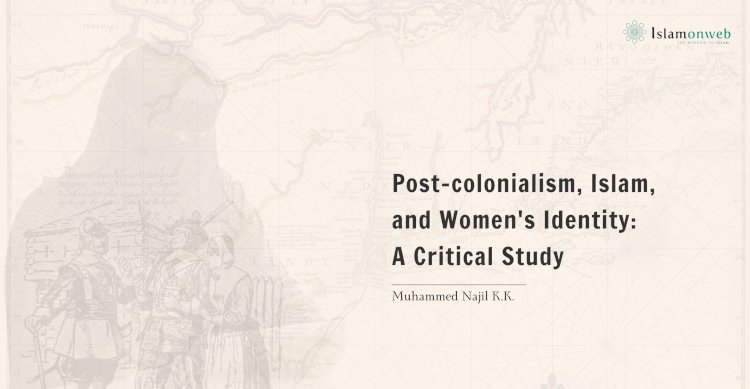


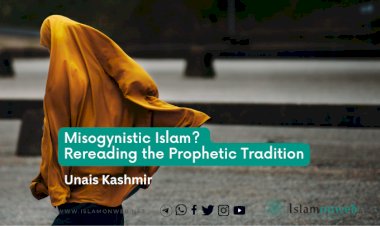
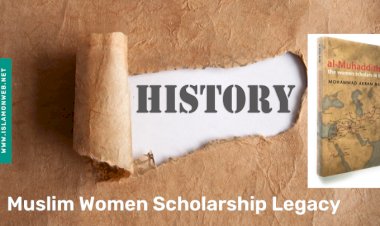
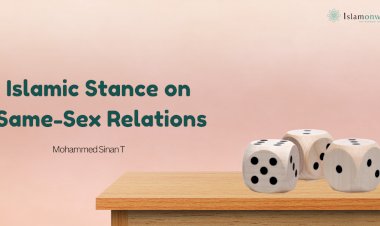

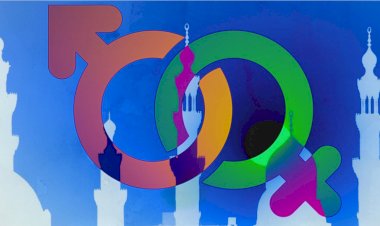
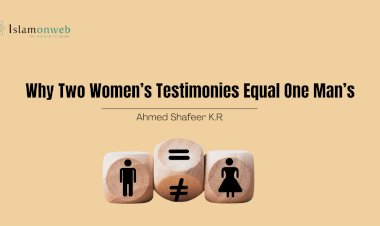














Leave A Comment